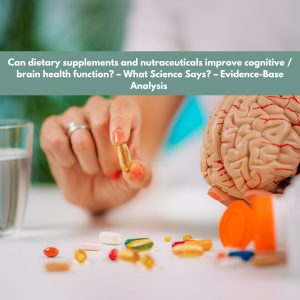Final Verdict: Does Science Back It Up?
This overview identifies these micronutrients that can help older adults stay in good health backed by good scientific evidence from clinical trials and guidelines. These micronutrients will not, however, substitute a healthy lifestyle, but should serve to prevent bone loss, preserve muscle strength, etc., in the full view of available nutritional data on the substances.






